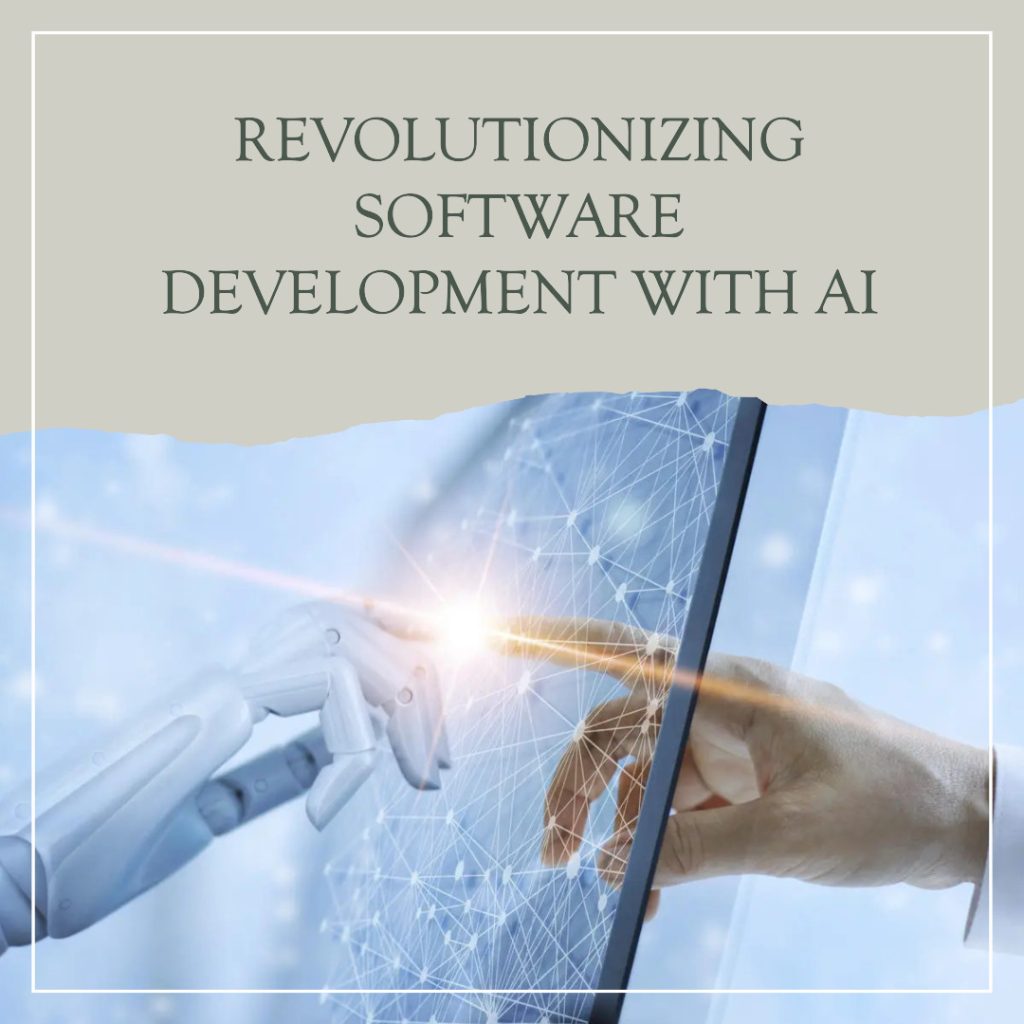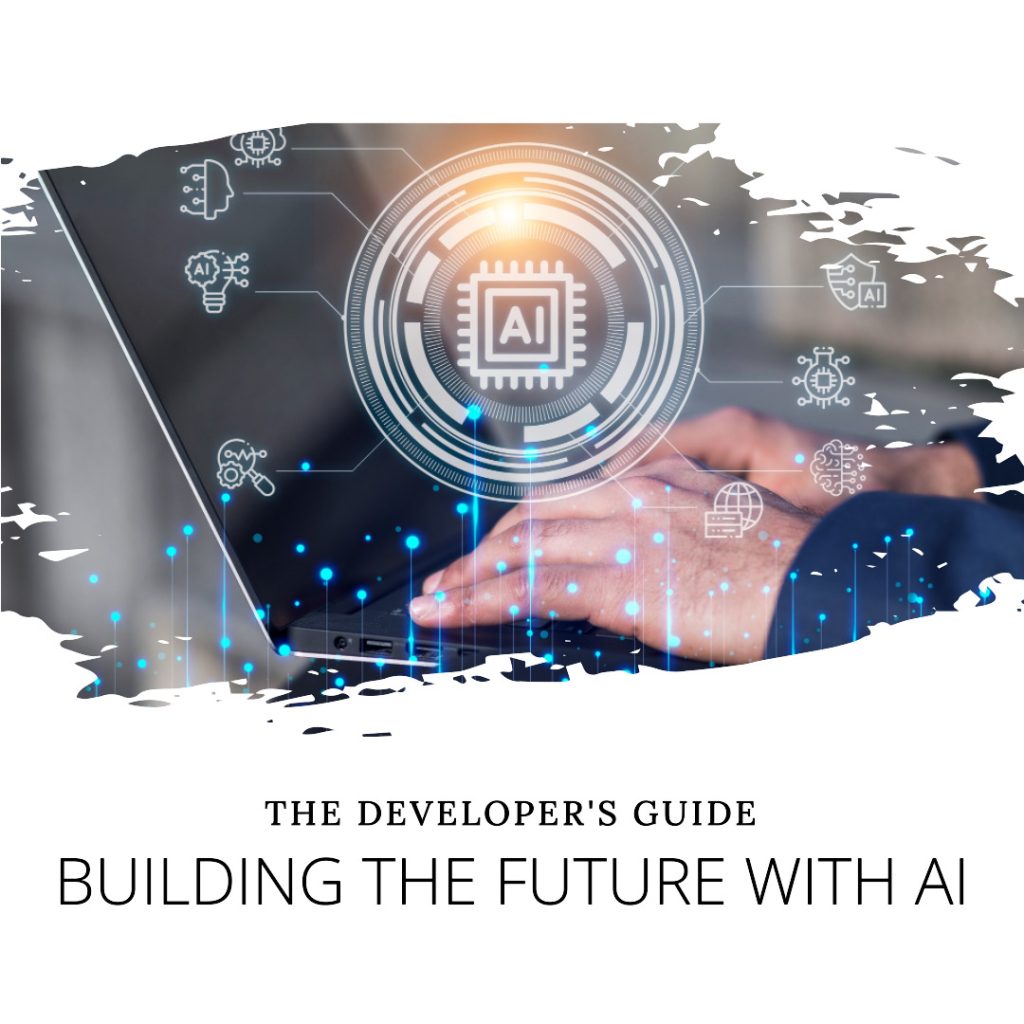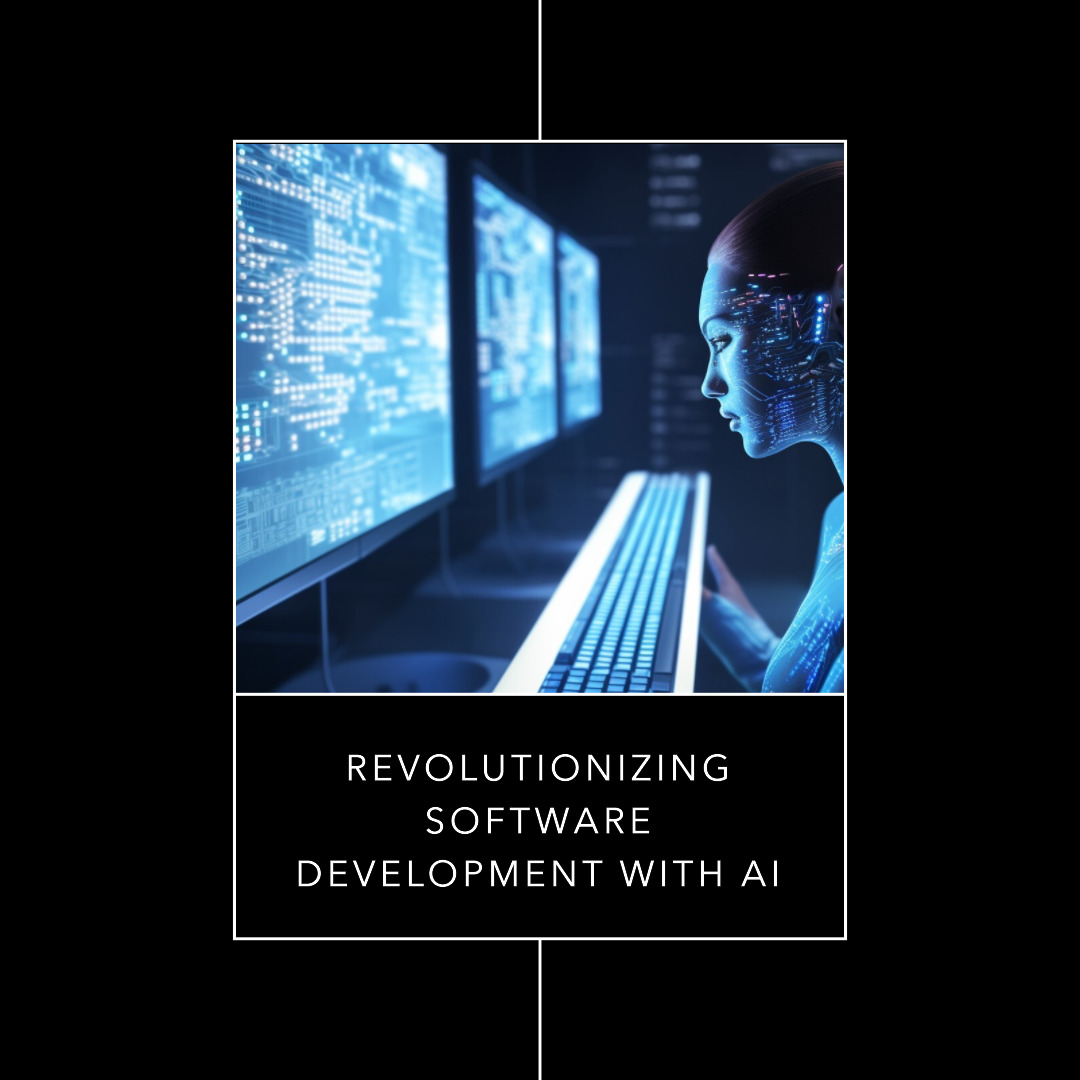Artificial Intelligence (AI) has been a transformative force in various industries, from healthcare to finance and entertainment. However, its impact on software development is a topic of growing importance and interest. In this blog post, we will delve into the future of AI in software development, exploring the current state of AI in this field, its potential applications, challenges, and the implications for developers and the industry as a whole.
The Current State of AI in Software Development

Before we delve into the future, it’s essential to understand where we currently stand in terms of AI in software development. Over the past decade, AI has made significant inroads into various aspects of software development, including:
1. Code Generation and Autocompletion
AI-powered tools like GPT-3 have shown remarkable capabilities in generating code and assisting developers in writing software. These models can understand natural language descriptions of coding tasks and produce corresponding code snippets, making development more efficient.
2. Bug Detection and Code Review
AI can help identify bugs and security vulnerabilities in code through static and dynamic analysis. Advanced tools use machine learning algorithms to find patterns indicative of code issues and provide suggestions for improvement.
3. Test Automation
AI has improved test automation by generating test cases, predicting which parts of the code are most likely to contain defects, and even autonomously running tests. This reduces the burden on developers and enhances software quality.
4. Natural Language Processing (NLP) for Documentation
NLP models can automatically generate documentation from code and understand user queries, making it easier for developers to create and maintain documentation.
5. Predictive Maintenance
In software maintenance, AI can predict when and where software components are likely to fail, allowing proactive maintenance and reducing downtime.
6. DevOps and Continuous Integration/Continuous Deployment (CI/CD)
AI helps streamline the CI/CD pipeline by automating tasks like code deployment, monitoring, and performance optimization.
These are just a few examples of AI’s current impact on software development. As AI technologies continue to advance, we can expect even more profound changes in the industry.
The Potential Applications of AI in Software Development
The future of AI in software development holds vast potential, with numerous promising applications on the horizon:
1. Code Generation and Assistance
AI will become more proficient at generating complex code, reducing the need for manual coding. Developers can focus on high-level design, leaving routine tasks to AI.
2. Intelligent Code Review
AI will offer more advanced code review capabilities, not only identifying bugs but also suggesting solutions and detecting code smells and best practice violations.
3. Augmented Collaboration
AI will enhance collaboration among developers by offering intelligent suggestions during pair programming sessions and facilitating more efficient knowledge sharing within development teams.
4. Predictive Analytics
AI will help developers make data-driven decisions by predicting software performance, user behavior, and potential issues, enabling proactive adjustments and optimizations.
5. Enhanced Testing
AI-driven testing tools will provide more comprehensive test coverage, automatically generate test cases, and adapt to evolving codebases.
6. Natural Language Understanding for Development
AI-powered chatbots and assistants will understand developers’ natural language queries, aiding in troubleshooting, finding documentation, and offering relevant resources.
7. Automated Documentation
AI will automate the generation and maintenance of documentation, ensuring that it remains accurate and up-to-date.
8. Auto-Scaling and Resource Management
In cloud-based software development, AI will optimize resource allocation and automatically scale infrastructure to handle varying workloads efficiently.
Challenges and Concerns
While the future of AI in software development is promising, it also comes with challenges and concerns:
1. Bias in AI Algorithms
AI models can inherit biases present in the data they are trained on. This can lead to biased code suggestions and reinforce existing inequalities in software development.
2. Security Concerns
As AI is integrated into software development processes, it becomes a potential target for cyberattacks. Ensuring the security of AI-powered development tools is crucial.
3. Privacy
AI systems that analyze code and development practices may raise privacy concerns, as they could reveal sensitive information about developers and their work.
4. Skills Gap
The increasing reliance on AI in software development may create a skills gap, where developers must acquire new skills to work effectively with AI-powered tools.
5. Ethical Considerations
Decisions made by AI systems in code generation, testing, and code review may have ethical implications, requiring careful consideration and oversight.
The Role of Developers in an AI-Powered Future

As AI becomes more integrated into software development, the role of developers will evolve:
Developers will focus more on creative problem-solving, high-level architecture, and designing AI-powered systems.
Developers will customize AI tools to align with specific project needs, fine-tuning models and algorithms.
Developers will play a crucial role in ensuring that AI tools are used ethically and responsibly, advocating for fairness and transparency.
To remain effective in their roles, developers will need to stay updated on AI advancements and adapt to new tools and practices.
Conclusion
The future of AI in software development is undeniably exciting, with the potential to revolutionize how software is created, maintained, and optimized. AI will automate routine tasks, improve code quality, and enhance collaboration among developers. However, it also poses challenges related to bias, security, privacy, skills, and ethics that must be carefully addressed.
Developers will continue to be at the forefront of these developments, adapting to new AI-powered tools, customizing them for their needs, and ensuring that AI is used responsibly and ethically. As the field of AI in software development evolves, it is essential for developers and the industry as a whole to embrace these changes and leverage AI to create better, more efficient software systems for the benefit of society.
Buy domain for your website







